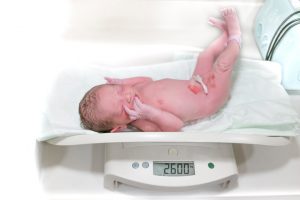
An analysis of over 3,700 pregnancies in women with multiple sclerosis suggests that the therapy does not lead to an increased risk of miscarriage, premature birth or severe birth defects. Many women are diagnosed with multiple sclerosis (MS) at an age when they are considering starting a family. What does the disease and its treatment mean for the child?
To answer this question, a research team led by Professor Kerstin Hellwig from the Department of Neurology at the Ruhr University Bochum analyzed over 3,700 pregnancies of women with MS. More than 2,800 of them were treated with various immunomodulatory agents before or during pregnancy. The researchers found that most therapies were not associated with an increased risk of miscarriage, premature birth or severe birth defects. They published their findings in The Lancet Regional Health Europe.
One of the Largest Cohorts Worldwide
The data for the pregnancies included in the study come from the German Multiple Sclerosis and Pregnancy Registry and were collected between November 2006 and June 2023. 2,885 pregnancies were analyzed in which the mothers had received a so-called disease-modifying therapy (DMT). The substances used in the study included interferons, glatiramer acetate, dimethyl fumarate, teriflunomide, S1P modulators (fingolimod, ponesimod), alemtuzumab, natalizumab, anti-CD20 antibodies (rituximab, ocrelizumab, ofatumumab) and cladribine. 837 pregnant women had not received any medication for MS. “This cohort is one of the largest worldwide,” emphasizes Kerstin Hellwig. ”It shows a high variability in exposure to the different immunotherapies. Most women had received medication only in the first trimester of pregnancy.”
The researchers compared the frequency of miscarriages, infections during pregnancy, premature births and birth defects, and recorded the birth weight of the children. The most important result was that exposure to most DMTs during pregnancy was not associated with a statistically significant increase in the incidence of spontaneous abortions, premature births or severe congenital defects. “Due to the small number of cases of pregnancies with exposure to cladribine, teriflunomide and alemtuzumab, we cannot draw any clear conclusions about rare events such as congenital defects or severe infections,” Hellwig admits.
MS Medications Only Slightly Increased the Risk of a Lower Birth Weight

Overall, there was an increased risk of a low birth weight in the entire cohort, depending on the length of the pregnancy. 18.8 percent of babies were affected. In relation to all births in Germany, this is only 10 percent. Children of mothers with MS who did not receive any medication were also more likely to have a below-average weight, at 17.6 percent. This risk was particularly pronounced in the case of exposure to S1P modulators (27.4 percent) and anti-CD20 antibodies (24.1 percent).
Overall, serious infections during pregnancy were rare. In pregnancies without medication, they occurred in about one percent of mothers. In pregnancies with exposure to fumarate or alemtuzumab, they were statistically significantly more frequent (2.8 percent and 9.1 percent, respectively). More severe infections occurred – although not significantly more frequently than in the control group – in pregnancies treated with natalizumab in the last trimester of pregnancy, and in pregnancies treated with S1P modulators (three percent each) and with cladribine (4.8 percent). “It is interesting to note that severe infections occurred in only 0.6 percent of pregnancies with exposure to anti-CD20 antibodies,” emphasizes Kerstin Hellwig. Women who received natalizumab in the second (26.7 percent) or third (20.7 percent) trimester of pregnancy or were treated with anti-CD20 antibodies up to six months before their last menstruation (23.2 percent) were more likely to receive antibiotics during pregnancy than women who had not received DMT (12.1 percent).
Individual Risk-Benefit Assessment
“When interpreting the results, it should be noted that it takes about 300 pregnancies to show a threefold increase in the risk of major birth defects and about 1,000 to show a twofold increase,” says Kerstin Hellwig. While most DMTs do not increase the risk of critical pregnancy complications, exposure to S1P modulators, natalizumab and anti-CD20 antibodies increases the likelihood of low birth weight and slowed intrauterine growth. This is a risk factor for both fetal and neonatal death and for numerous diseases later in life, including type 2 diabetes mellitus and cardiovascular disease. There are plans for further evaluations in the registry, for example, to determine whether and when the children will catch up in terms of growth. According to the researchers, the results underscore the importance of an individual risk-benefit assessment and close medical care during pregnancy.


